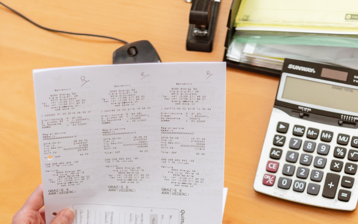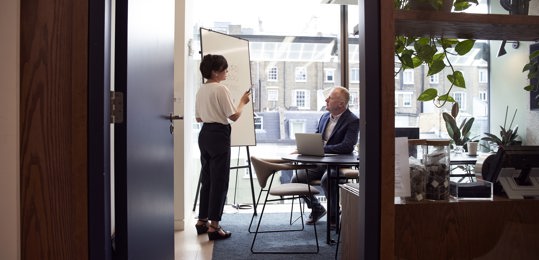Is planning important?
Choosing when to retire is a big decision, so it’s wise to try to plan for that occasion as soon as possible. While planning for retirement might not be a topic everyone wants to think about too soon, it is important to remember that retirement planning is changing and evolving all the time. For example, changes to the retirement age and state pension rules impact us all. On top of that, fewer people benefit from final salary pensions compared to previous generations, which provides income based on how much you earn when you retire.
There’s the matter of global events influencing economies to consider too, for example the COVID-19 pandemic has hit a lot of people and businesses hard in the last two years. This impact extends to influencing peoples retirement savings, as pension funds invest in stock markets and when those start to dip this has a negative impact on peoples savings, sometimes significantly so.
The state pension, while welcome, does not typically provide enough income for most people to retire on alone once you consider the overall cost of living in the UK. Therefore it is wise to think of the state pension as a bonus, or top up, rather than a primary source of retirement income which you can rely on.
If you are employed, you will likely be aware of workplace pensions which have become significantly more common in recent years since the introduction of auto-enrolment, however a large number of self-employed workers are not eligible for these. Legislation is always changing, so while there are plenty of options at your disposal it is always advisable to seek professional advice so you can fully understand your choices and ensure that they are based on up to date information.
How much do I need to save?
A lot will depend on the length of time you have to save before your planned retirement date. The sooner you start saving the less you will need to set aside each week or month. The obvious implication is that the earlier you start saving the easier it will be to save. You need to consider that the cost of living in the UK is increasing and your own personal lifestyle and choices will also influence how much you need to fund a comfortable retirement for yourself.
Things to consider are how much you spend currently each month, then identify any expenses you incur that you won’t have to pay after you retire, for example commuting to work, pension contributions, mortgage repayments (assuming it will be repaid by then).
Consider other factors, such as if you have children who won’t be living at home when you’re retired. Ask yourself if you will be able to take holidays at cheaper times during the year? Without a commute can you save money with a more economical car or perhaps share a single car if you are a couple with a car each?
SunLife carried out a study that suggested the average person over the age of 55 needed £114,436 to retire in 2021. However if you isolated those aged 55-60 only in that study, they required more than those in their 60’s and above, needing £180,741 on average, highlighting the importance of planning when you want to retire. The earlier you choose to retire, the more you will likely need to have saved.
There are plenty of online calculators that will help you work out how much you need to save to reach the figure you want. Remember, if you are eligible, in addition to any personal pension plans, you will also receive income from your state pension which you should consider as well.
There are also limits to how much you can invest in a pension pot per year and over your lifetime without incurring tax charges. The maximum limit per year is £40,000, however if you have started to flexibly access your pension from the age of 55, if your net relevant earning are lower and/or you earn over a certain amount your personal limit may be less. If you exceed the annual allowance then you will have to repay any tax that has been saved on the excess contributions.
The lifetime limit is currently £1,073,100, if your pension pot exceeds the lifetime limit when the time to start drawing down your pension arrives you may have to pay tax on that also. However this limit is currently increasing each year based on inflation.
How should I start?
If you are employed, it is wise to take advantage of your workplace pension, especially if you are in your 20’s or 30’s. If you are in this age group and self-employed, consider contributing to a personal pension plan or a lifetime ISA. Employees can also take advantage of these options to supplement other savings. Consider how much income you have left over at the end of each month and see what you can afford to save extra.
When looking at risk, consider how close to retirement you are. It makes sense to reduce the level of risk on your pension savings as you draw closer to retirement age as there is less time to recover from losses incurred as a result of high risk investments.
If you are considering investing in property to finance your retirement, bear in mind that in recent years the government have targeted ways they can reduce the benefits to landlords. One such way they have done this is that mortgage interest payments are no longer allowed to be treated as an expense against your rental income. Instead you receive a 20% tax reducer on any rental profits received. This is one of many things to consider when deciding if investing in property will be profitable for you and provide valuable funds you can put towards your retirement.
For those nearing retirement age it is a good idea to keep track of how much your retirement income is likely to be. You can check your state pension online by logging into gov.uk. Once you have an idea of how much you will likely received, try to estimate what your anticipated expenditure in retirement will be. Remember you may still have to pay income tax if your income exceeds your annual personal allowance which is £12,570 in 2021/22. If you have a mortgage on your home or other loans it is wise to try to repay those before you retire if you can.
Once you have a clearer picture of how much you will receive against how much you will spend, you can begin to consider when you can start drawing your pension.
Do I have to pay tax during retirement?
As with most things when you earn income there are tax implications. Pensions are no different, so bear in mind you will usually owe tax on your pension payments if those payments exceed your personal allowance. At basic rate you will pay 20% in tax on income, 40% at higher rate and 45% at additional rate if you live in most of the UK, except for Scotland which has its own rates and thresholds.
You will begin to lose your personal allowance by £1 for every £2 you earn over £100,000 in a year as well. This applies to the whole of the UK including Scotland.
If you are 55 or over you can draw a lump sum from your pension pot, the first 25% drawn is tax free and the rest is taxed at your marginal rate. And those who work beyond their pension age will find that although they still have to pay income tax, they will no longer have employee national insurance payments deducted from their salary.
As with all financial matters, careful planning is important to helping you reach the best outcome and seeking professional advice is always advisable.





